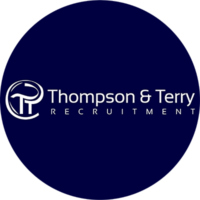How to Avoid Recruitment Bias Whilst Interviewing!

With International Women’s Day having recently been celebrated across the globe I have seen lots of posts on social media regarding gender bias in the workplace. One article in particular, written by BrightHire, which outlined ‘Ways to Make your Interview Process More Inclusive for Women’ really got me thinking more about recruitment bias in general.
So, I started digging…
According to popular job board Indeed, recruitment bias occurs when you “create an opinion about a prospect simply based on initial impressions”. In other words, recruitment bias refers to a process by which one applicant is chosen over another based on factors other than their ability to do the job.
Although I was glad to read in an article written by The REC that we are starting to see a positive change in business culture, the harsh reality is that this happens at all levels and across all sectors!
So, what can you do as an internal recruiter or hiring manager to counteract recruitment bias?
Well, it starts right from the very beginning with the language you use in a job advert. CIPD, for example, found that job adverts asking for ‘competitive’ or ‘determined’ people tend to bring in more male candidates and The REC similarly found that using terms such as ‘energetic’ or ‘vibrant’ can imply the desire for a younger worker and can often discourage older jobseekers from applying. There are software and tools that you can use to help make your language in job adverts more inclusive, such as Textio.
Then we move onto the question of where to advertise a job. Certain age groups might use different mediums to help them find a job, so you need to be aware of where you’re posting and who you’re going to attract.
Finally, when a candidate has read your job advert and applied for the role you need to ensure that you are fair in choosing who to go ahead and interview.
To do this, one method that has become much more popular since the infamous tribunal against Virgin Atlantic in 2015 is to anonymize CVs – so much so that think tanks such as Runnymede have been calling on the government to encourage blank name application forms.
By anonymizing CVs in your hiring process, you’re not only eliminating the risk of your own bias getting involved but you’re also ensuring that candidates who make to interview stage have made it based on nothing other than their ability to do the job! After all – discriminating against anyone on the grounds of age, gender and sex, disability, religion or belief is illegal.
To summarise…
Whilst recruitment is an essential process for so many organisations, and those who work as a recruiter actually earn their living through placing a candidate as efficiently as possible, it is so vital that we take time to think about recruitment bias.
From job adverts, all the way through to final stage interview and placement, the recruitment process is so often tainted by bias. By doing your researching and ensuring that your business have the processes in place to eliminate such bias, we should all be looking to move towards a more equal recruitment process.



